If you’re a small business owner trying to make sense of search optimization these days, you’ve probably seen terms like “AEO” and “GEO” and even “AI SEO” and “LLMO” thrown around and wondered what the heck is going on around here. 😂

If you’re here, you’re not behind. In fact, you’re still early.
Even the gurus haven’t landed on one definitive term to describe the thing we’re all curious about right now: how to get AI to recommend YOUR content as a clickable source that drives traffic back to your website.
In this post, we’re going to focus on AEO and GEO because these are the terms SEO experts are using most and they often use them interchangeably.
But, as you’ll see, there are differences. And as a business blogger, one of them is more important for you. So let’s get into it.
Key Takeaways:
- AEO (Answer Engine Optimization) = Getting your content shown in Google’s AI Overview box
- GEO (Generative Engine Optimization) = Getting recommended when people ask Ai tools like ChatGPT, Perplexity, or Claude for advice
- GEO traffic converts at much higher rates than regular search traffic
- GEO is where the real opportunity is right now for small business blogs
What is AEO (Answer Engine Optimization)?
AEO is about getting your content shown in Google’s AI Overview – that box at the top of search results that gives you a direct answer.
Example: Someone types the question, “what is funnel-first blogging?” and Google shows this:

What’s happening: Google’s AI read multiple sources (including mine), synthesized the information, and created an answer. My blog post shows up as the main source.
The appeal: High visibility in Google search results.
The problem: Most people get their answer right there on the search page. According to Ahrefs research, when an AI Overview appears, the click-through rate for the #1 organic result can drop by 30-50%.
That said, if people DO click through to learn more, it’s still valuable for building your audience, so make sure you’re asking your blog visitors to subscribe to your email list so you can move them deeper into your marketing funnel. </mom>
See: How to Turn Your Blog Post Into a High-Converting Lead Magnets in 4 Steps
Remember it like this:
Google tends to show AI Overviews for definitional questions like “what is X?”
For years, traffic bloggers – those who make money FROM their blog based on traffic – could make a perfectly nice living answering these types of questions. Google listed their posts, sent them traffic, and they made money.
Unfortunately, AI has pretty much killed that particular game.
But business bloggers make money WITH their blog by generating leads and sales. Traffic is great, but conversions are actually the goal.
For more complex questions? That’s where AI tools are taking over at a rate of adoption that’s absolutely unprecedented. It’s also where business bloggers shine because they’re natural authorities.
Which leads us to…
What is GEO (Generative Engine Optimization)?
GEO is what happens when someone asks ChatGPT, Perplexity, or Claude for advice and your content gets recommended.
Let’s go back to my example so you can see the difference…
Definitional question: “What is funnel-first blogging?”
- People Google this
- Google shows an AI Overview
- My blog post gets cited as a source
- We get a trickle of traffic compared to the good old days 😢
More complex question: “What blogging strategy should I use if I want to build a sales funnel, not just get SEO traffic?”
- Google ranks this content #1 in traditional search results
- No AI Overview (because this type of question doesn’t trigger it)

In these new-fangled times of ours, people are MORE LIKELY to pull up ChatGPT, Claude, or Perplexity when asking this type of question.

The same question asked in Perplexity provides an overview of my approach and lists my blog post as the #1 source. And, links to it right from the overview itself.
I know from digging into my Google Analytics that ChatGPT has sent referral traffic to this specific post as well, but I’ve not quite cracked the code when it comes to figuring out WHAT questions people asked before arriving.
Just this morning, I signed up to Tally.so to create a survey after Claude recommended them, and Tally asked me what question I posed to Ai that led me to their service.

Do you see it yet? 👀
I went from never hearing about Tally.so to becoming a customer in a few minutes because Claude understands my needs. I didn’t have to dig through a bunch of Google links or seek out reviews or comparison posts to find what I’m looking for.
And I know I’m kind of going on tangents here but the point is that Tally.so “gets it” – it’s asking HOW DID THIS MAGICAL AI RECOMMENDATION HAPPEN WE WANT TO KNOW!
We need to start thinking about WHY Ai might recommend our business so we can optimize for those reasons. (No doubt, getting this kind of intel will get easier as SEO companies evolve. Trust that they are actively working on it.)
Because what’s happening right now is like the difference between:
- Googling “best restaurants near me” and picking one from the list
- Asking your friend who’s a foodie for a restaurant recommendation and going there
Ai recommendations are the new word-of-mouth marketing which has always been the most powerful.
That’s GEO.
And it’s got me feeling optimistic about the future of business blogging.
A lot of businesses are giving up on blogging because of what’s happening in Google search and that’s great – more AI referral traffic for me!
Said another way…
If you’re not blogging, it’s going to be really hard for your business to be cited by Ai.
For those who hang in there, take a look at the data, because the news just keeps getting better…
Ai Referrals: Lower Traffic, Higher Conversions
According to recent Ahrefs research, traffic from AI search converts 23 times better than traditional organic search traffic.
Now, before you get too excited, I’ve heard everything from “3-4x higher conversion rates than search traffic” all the way up to more than 20x higher. And also zero. So. 🤷🏻
Take these figures with a grain of salt – lot of what I’ve been hearing is trustworthy, but anecdotal. Everybody seems to be scrambling to get reliable research on this.
But, the general consensus seems to be that while traffic volume may be much lower, AI search traffic delivers exponentially better results in terms of conversions.
And it makes common sense. Think about the journey:
Traditional Google search:
- Person has a question
- They Google it
- They scan the results
- They pick a link to click
- They land on your site and start evaluating you
AI chat search:
- Person has a question
- They ask their AI “buddy” (ChatGPT, Perplexity, Claude)
- The AI researches multiple sources
- The AI recommends specific approaches/frameworks
- Person clicks because it was recommended
- They land on your site already pre-qualified
The AI did the research and comparison shopping for them. By the time they click through to your site, they’re not in “browsing” mode – they’re in “this seems like the right approach, let me seriously consider this” mode.
The Bottom Line
You still need SEO and even AEO, but GEO is where the real opportunity is for small businesses right now.
In the coming weeks and months I’ll be covering this topic a ton – including specific strategies for getting your content cited by AI tools and how to create the kind of frameworks that ChatGPT and Perplexity recommend.
Want to be first in line when I release something to help you with all this?
I’m working on something specifically for business bloggers who want to understand how to optimize for AI search without getting overwhelmed by all the technical jargon.
In the meantime, just know that if you focus on the fundamentals of creating GOOD content – content that goes beyond answering basic questions that any AI tool can now do better – you have every reason to feel optimistic that AI search has the potential to benefit your business in a big way.

